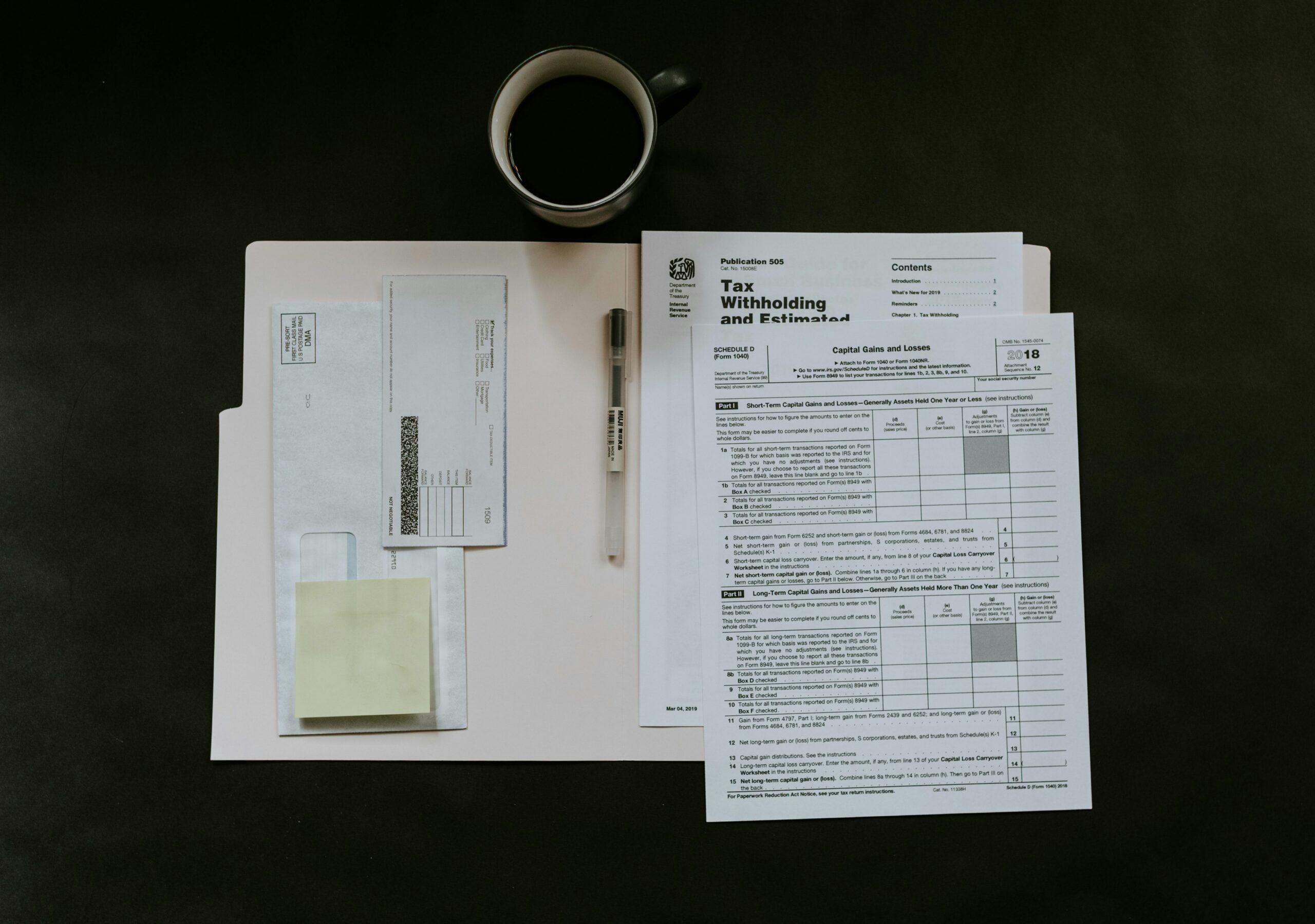8 ways to use your tax refund wisely
By Mickael Destrempes | Published on 20 Aug 2023

Like the small fortune buried in the cracks of your couch or the discovery of a $20 bill in the pockets of an old coat, your tax “return” can be intoxicating with its sweet scent of being reunited with your money. It seems that this money reappears in the most fateful way! But how do you handle this money effectively?
There’s obviously nothing wrong with having fun. With things beginning to open back up after more than a year of being confined, a tax refund of a few hundred, even a few thousand dollars, is easy to accept. It’s also easily spent! So here are 8 ways to optimize and leverage your tax refund.
1— Invest on your own by opening an account with an online broker

You don’t invest in the stock market as you gamble in a casino, but investing through an online brokerage is a fun way to learn more about finance and economics. And you get to try to grow your stash too, of course!
If your financial health is already in the care of investment professionals, your tax refund is an ideal springboard for diving into the stock market, without too much risk or unfortunate consequences. A few hundred dollars can be enough to get started. Before signing up for a service, look beyond branding and choose the one that truly meets your needs and your means. Using Hardbacon’s online broker comparison tool, you can find the one whose offer is best suited to your investor profile.
This list of the best brokers in Canada is also a good starting point after reading about the main things to consider in an online brokerage platform.
Despite all the good reasons to learn about stock market investing, keep your cool, refer to various sources of information and make the most informed decisions possible. For example, the stock market saga around GameStop in 2021 may have made many smiles, but the bill was regrettably too high for some small investors who got too carried away.
2— Invest on your own through a robo-advisor

If the idea of keeping a close eye on corporate financial news and disclosures doesn’t appeal to you, robo-advisors offer an affordable solution that’s better for you.
Since most Canadian robo-advisors invest in index-based exchange-traded funds (ETFs), the logic of selecting stock is completely abandoned in favour of a return that generally follows the market. This type of service is therefore very attractive for young investors or newbies wishing to be autonomous without going into the stock market without a net. Having said that, the Hardbacon robo-advisors comparison tool can help you sort through them to find the one that is best suited to your needs.
3— Invest in yourself with education

This isn’t news to anyone: acquiring new knowledge and skills is now a lifelong process. At least, the idea that our need for education ends in our early 20 is largely outdated.
In terms of tuition fees, several courses may be eligible for a non-refundable tax credit, which will contribute to the following year’s refund. Of course, we are alluding mostly to education specifically designed to advance one’s career, but that’s not all. Taking culinary education online just for fun can also have a positive financial impact, if only by reducing your spending in restaurants.
Then, it must be said that life isn’t just about work and money! Learning a new language can completely change the way we travel. Any addition to our toolbox can only bring pleasant consequences.
4 — Invest in your good conscience by making a donation

Many charities have had difficulty replenishing their coffers due to the inability to organize fundraising events. If you’re feeling generous, use your tax return to give back. About 50% of the amount will be returned to you in the form of credit next year.
5— Invest in the safety of loved ones with life insurance

If your loved ones depend on you for support, it’s high time to take out life insurance. Hardbacon’s life insurance comparison tool is the best place to start your shopping.
By the way, did you know that if your TFSA and RRSP are already well-stocked, life insurance can also be part of your savings strategy? So here’s another good reason to have life insurance.
6— Invest in your physical health

Studies show that there is a correlation between financial health and physical health. Anyone who’s been in debt will be able to tell you about it. However, there’s also reason to believe that the relationship is a two-way street. Being fit and feeling good about yourself can have positive effects on your personal finances.
If you absolutely want to spoil yourself with your tax refund, why not spend it on a product or service that will help you get in shape? After the months of confinement we just lived through, now’s the time to gear up to play outside for a bit. Or maybe even gear up to stay active at home in the event of another similar situation.
7— Invest in your peace of mind by replenishing your safety cushion

Maybe we should have put it at the top of the list since it’s the basis once your debts are paid off. Ideally, your emergency fund should cover your regular expenses for three months. The TFSA is a relatively user-friendly tool to accumulate and grow your safety cushion.
8— Invest in your financial and mental health by paying off your debts

We know the story by heart. The only thing to remember is that it’s always best to put surplus payments on debt with the highest interest rate. Let’s look at an example:
You have:
- A $1000 credit card balance at 20% interest
- A $5000 line of credit at 10% interest
- A mortgage balance of $50,000
Once you’ve made your minimum monthly payments on all three debts, it’s more beneficial to put any surplus amount on the credit card. Regardless of its balance, it’s costing you the most in interest.
We hope our suggestions give you some inspiration. Let’s remember that there’s no perfect “one-size-fits-all” recipe for maintaining good financial health, but there’s no harm in treating yourself to a frivolous expense once in a while, either. After all, it’s all about balance.
